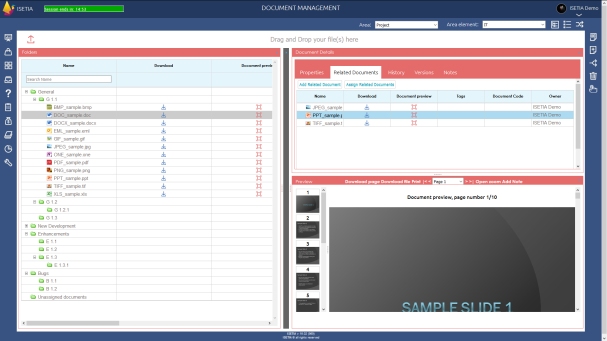Everything You Need To Know About Common Data Environment (CDE)
It is unbiased to say that a common construction project produces an immense amount of data. Any project – from a small retrofit to a 100-acre tech campus – needs the creation & sharing of indefinable data throughout the lifespan of the project. Sadly, most teams find it hard to tackle & disperse this info efficiently. This poor management inevitably results in errors, rework, cost overruns, missed deadlines, and even lawsuit.

Fortunately, there’re ways to sort out construction’s data overload. And the best way to rectify this problem is to form a uniform way of configuring data & collaboration – or, more explicitly, by implementing a common data environment.
What’s common data environment (CDE)?
The CDE is the solitary source of information employed to amass, manage & distribute documentation, the graphical model & non-graphical data for the entire project crew. Forming this solitary source of info simplifies cooperation between project team members and help in avoiding duplication and errors.
To put it another way, a CDE is a digital hub where info comes together as part of a characteristic BIM workflow. Veritably, it was developed & promoted as a component of the UK Building Information Modeling Level 2 standards. At present it goes beyond BIM data & info, and it can encompass everything from contracts, change orders, schedule, and more.

Why embrace a common data environment?
There’re many convincing reasons to embrace a CDE on construction projects. Some of these reasons include:
Improves teamwork: Time and again digital technologies have proven that they can enhance team work if employed in the right manner. That entails all project data & info must be updated in one integrated system. And this eventually leads to enhanced teamwork both internally & across teams.
Enhances efficiency & quality: CDE decrease the need to refashion data manually, which leads to decreased input mistakes & lost info. As a result, the whole firm has enhanced access to info that allows teams to make decisions faster.

Reduces risk: A Common Data Environment reduces risk with improved pellucidity & insight into the complete project landscape. Over time, this allows persistent improvements & probability, vital for outrivaling a business forward.
Don’t allow data to slip through the openings. A CDE sets your business & projects up for success by letting your team optimize & use the info when it matters the most. Moreover, good data can allow future technologies to speed up project delivery. Implement a CDE to make sure that your approach towards projects & collaboration stays strong from design through operations.
Comments
Post a Comment